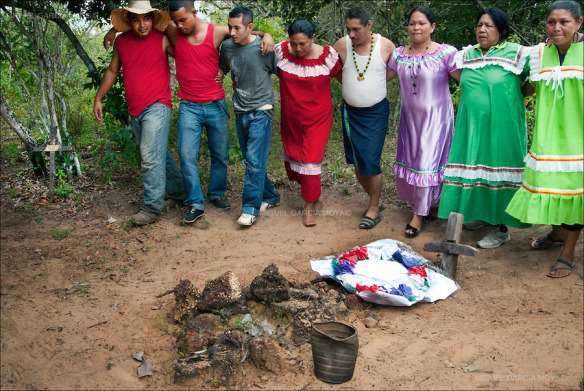Nasopharyngeal samples taken in 20 of the 23 states of Venezuela are sent to Caracas to detect coronavirus infections through PCR testing. Only five laboratories process the samples for the entire country; three of them are located in the Capital District and the state of Miranda. In many regions, patients die or are discharged without knowing if they tested positive for COVID-19 due to the delay in the results of the molecular tests
In Venezuela, only five laboratories process nasopharyngeal samples for the detection of the SARS-CoV-2 type of coronavirus which causes the COVID-19 disease, by conducting Polymerase Chain Reaction (PCR) tests. Three of them are located in the center of the country (Capital District and Miranda), one in Táchira, and another in Yaracuy. As of July 21, after more than three months of the epidemic in Venezuela and 12,774 officially confirmed cases, only two of those five laboratories were working; one of them, located in Táchira, is a small mobile unit, whose operational capacity remains undisclosed by the authorities.
In its daily report on COVID-19, the government of Nicolás Maduro does not provide on how many PCR tests are carried out in each of these laboratories. Nor does it specify the method by which the cases are confirmed. However, workers from the Ministry of Health, whose identities they asked to protect, revealed to El Pitazo that as of September 11, 107,414 PCR tests had been processed throughout the country. The figure represents 6 percent of the total of 1,790,239 tests that the government reported up to the same date. The rest, 1,682,825 exams, were rapid diagnostic tests (RDT).
Unlike PCR tests, rapid tests do not detect genetic components of the virus using ribonucleic acid (RNA), but rather the antibodies generated in the infected person after the disease progressed or was overcome. Therefore, RDTs are not used for timely detection in patients suspected of having the disease or for mass screening, which, according to the World Health Organization (WHO), is the modality that allows better containment of the advance of the epidemic, together with tracing and isolation. Because of this, the multilateral body advises against the use of RDTs for confirmatory diagnosis.
Last among Latin American countries
The PCR statistics revealed to El Pitazo by sources from the Ministry of Health place Venezuela at the bottom of the list of Latin American countries in terms of the number of molecular tests processed. A journalistic investigation published on August 30 by Prodavinci also places Venezuela in the same spot.
In a review of the official reports from nine Latin American countries on the number of tests carried out, it was found that the Maduro administration does not even reach the regional average. The revised data correspond to the period between March 13, when the first infections were reported in Venezuela, and September 13.
AS OF JULY 21, AFTER MORE THAN THREE MONTHS OF EPIDEMIC IN VENEZUELA AND 12,774 OFFICIALLY CONFIRMED CASES, ONLY TWO LABORATORIES WERE OPERATING
The list of Latin American nations with the highest diagnostic capacity is headed by Brazil, with 14,505,602 tests carried out until September 11. It is followed by Peru with 3,457,205 tests, and Colombia, which analyzed 3,062,852 samples in the same period. These three countries also lead the list in terms of the number of infections and deaths from COVID-19 in the region. The figures are not proportional though, since the number of tests reported must be weighed to the number of inhabitants at risk of contracting the disease.

When analyzing the data from Colombia and Argentina, countries with similar demographic characteristics, the deficit of the Venezuelan system remains high. The Colombian Ministry of Health has reported 3,062,852 tests for a population of almost 50 million people. Meanwhile, in Argentina, with more than 44 million inhabitants, 1,485,790 PCR tests have been processed. The same data for Venezuela represented only 3.5 and 7 percent of those figures, respectively.
Bolivia is the country with the second-lowest testing in Latin America, after Venezuela, with 266,600 PCR tests processed as of September 11. However, it more than doubled the number of analyzes conducted in Venezuela, having only 40% of the population of the latter.
20 out of 23 states send samples for PCR tests to Caracas
The recent activation of two more laboratories for PCR testing in Venezuela was announced on September 6. One of them is located in Guarenas, Miranda, and the other in the state of Yaracuy. The latter can conduct 1,000 tests a day, and samples from Lara, Portuguesa, Cojedes, Carabobo, and Falcón were to be processed there. However, as of September 18, only 1,113 tests had been carried out at the Yaracuy facilities from samples taken in the state only, according to information provided to El Pitazo.
Until the report of October 1, Yaracuy, Lara, Portuguesa, Cojedes, Carabobo, and Falcón accounted for 6,693 cases altogether, just 8.8 percent of the total national infections to that date, reported at 76,029.
WORKERS FROM THE MINISTRY OF HEALTH REVEALED THAT UP TO SEPTEMBER 11, ONLY 107,414 PCR TESTS HAD BEEN PROCESSED IN THE WHOLE COUNTRY. THE FIGURE REPRESENTS 6% OF THE TOTAL 1,790,239 TESTS REPORTED BY THE GOVERNMENT UP TO THE SAME DATE. THE REST WERE RAPID DIAGNOSTIC TESTS
Although there is no official information on the number of PCR tests processed by each licensed laboratory, nor from which states the samples come from, regional authorities and sentinel hospital doctors from 20 states of the country have indicated that all the samples are sent to Caracas.
Zulia has the highest number of deaths and not a single authorized laboratory
The state of Zulia, which registered the highest number of deaths from COVID-19 as of October 1 (93) and the third-highest number of infections among all states (6,844), does not have a laboratory to conduct PCR tests. On June 8, Governor Omar Prieto said that two facilities would be opened in the region. “You will no longer have to wait four days for the results; now, the contagion will be confirmed in two hours,” he said.

On June 22, Prieto announced that the following week the regional government would inaugurate a laboratory for PCR tests in the Blood Bank Unit of the Maracaibo University Hospital (HUM). “With that laboratory, we will be able to have the tests in seven hours. Those coming out positive in a rapid test will be able to confirm the diagnosis with a PCR test. If an infected patient has stayed at home, we will be able to confirm whether the rest of the family is positive or not, and whether or not they should isolate themselves. It will allow us to make better decisions,” he said.
Over a month later, on July 30, the governor stated: “The facilities to carry out the PCR tests in Zulia are ready and they will begin operations in the coming days to speed up the detection of suspected cases.” However, as of the publication date of this report, there is no further information in this regard.
A laboratory in Mérida is awaiting supplies since March 18
As of October 1, Mérida is the state that registers the highest fatality rate due to COVID-19 at 2.7 percent, according to the statistics of Sistema Patria. However, the state does not perform any serological test despite having a laboratory with the technical and human capacity to do it. The Ministry of Health authorized PCR tests processing at the Microbiology Laboratory of Universidad of Los Andes (ULA) on March 18, but the necessary laboratory supplies have not been sent.
In a March 18 interview, Luis Téllez, a professor at the ULA laboratory, indicated that the center had the capacity to conduct up to 20 PCR tests per day. During the years of the swine flu pandemic, this laboratory carried out a large part of the tests to detect the H1N1 virus.
According to figures released by the Government of Mérida on August 13, 7,314 nasopharyngeal samples had been taken for PCR tests in the state, of which 1,985 were awaiting a result. State medical sources have indicated to El Pitazo that the results of the samples taken in Mérida are sent to Caracas via airlift and take 15 to 21 days to be processed.
AFTER VENEZUELA, BOLIVIA IS THE COUNTRY WITH THE LOWEST PROCESSING RATE OF LABORATORY TESTS IN LATIN AMERICA, WITH 266,600 PCR TESTS PROCESSED AS OF SEPTEMBER 11
On September 3, the head of the General Surgery Service at Mérida University Hospital and member of the committee for COVID-19 cases, Estrella Uzcátegui, told El Pitazo that “most of those who die never receive a PCR result. However, they are treated under the protocol for COVID-19, even for the transfer of the corpses. RDTs and the collection kit for PCR tests are very scarce; some days we run out of supplies, like today, for example.”
Uzcátegui also indicated that, due to the shortage of RDTs and supplies to take nasopharyngeal samples, most of the patients admitted to the Hospital for symptoms associated with COVID-19 are treated by clinical diagnosis. “PCR results take 15 days or more. Imagine that we waited 15 days to decide whether or not to indicate treatment for COVID-19. The mortality would be much higher, ” she confessed.

Test results for Táchira take up to more than a month
Despite having a mobile laboratory to conduct PCR tests since last April 12, test results in the state of Táchira can take up to more than 30 days. A journalist from the border town of San Antonio del Táchira told El Pitazo that he was tested two months ago and the results took 15 days to be delivered.
The journalist, who asked to keep his identity protected, said on September 25 that “some 200 migrants returning from Colombia enter through the town every day. At customs, everyone gets a RDT, and those who test positive are sampled for a PCR test. I took the PCR test about two months ago and the result came in after 15 days; now, it is taking up to more than four weeks. About a month ago, people who had spent over 70 days at the Pasi (Comprehensive Social Assistance Point, created for Venezuelans returnees to serve quarantine) protested because the results of their PCR tests took too much time and continued to be positive, despite the time elapsed. The authorities allege that the delay is due to the number of samples that must be processed in the mobile laboratory that is reportedly located in San Cristóbal.”
On June 9, Laidy Gómez, governor of Táchira, denounced at a press conference that patients held in the respiratory isolation area at San Cristóbal Central Hospital, a sentinel center for COVID-19 cases, were dying before the arrival of the result of their PCR tests.” Many times patients die and the results never arrive, so we do not know if the patient died from the virus or a different respiratory condition,” she said.
THE STATE OF ZULIA, WHICH RECORDED 93 DEATHS FROM COVID-19 AS OF OCTOBER 1, DOES NOT HAVE A SINGLE LABORATORY TO PERFORM PCR TESTS
To date, no official information has been given on the operation of the mobile laboratory installed in Táchira over five months ago. Regional authorities do not indicate how many PCR tests are processed in the facility.
Some Universities have laboratories capable of conducting PCR tests
The Venezuelan Society of Bioanalysts (SVBE) issued a statement on July 27 to point out that the organization has not obtained a response from the Ministry of Health on the authorization of three autonomous university laboratories capable of performing PCR tests.
The laboratories are located at three different university campuses in Aragua, the Capital District, and Zulia. These are the Basic and Applied Research Laboratory of the Central University of Venezuela (UCV), the Molecular Biology Laboratory of the University of Zulia (LUZ), and Dr. Francisco J. Triana Alonso Institute for Biomedical Research at the Aragua campus of the University of Carabobo (UC).
The statement specifies that the SVBE “has participated in several meetings with officials from the Ministry of Health to express our willingness to participate in the diagnostic process. Three projects were sent to the Ministry via email with a list of supplies needed for processing 1,000 samples (…) However, we have not obtained an answer.”
After the announcement of the recent authorization of two more laboratories, issued on September 6 by the Maduro government, the SVBE raised its hand again on September 11: “We recognize the work being done by the Rafael Rangel National Institute of Hygiene and the other 4 laboratories in the processing of RT-PCR tests; However, they are insufficient to determine the real size of the COVID-19 pandemic in the country. It is logical to think that your capacity is saturated. The average delay in the delivery of the results has been estimated in 8 to 17 days depending on the distance from the city where the sample was taken to the Institute in the Capital District.”
The SVBE reiterated in the most recent statement that the three laboratories at the UCV, LUZ, and UC were in conditions to process molecular tests, and added on this occasion to the Microbiology Laboratory of the ULA in Mérida, which has been waiting for supplies after being authorized by the Ministry of Health in March.
Higher capacity, higher opacity
More than six months into the coronavirus pandemic in Venezuela, the lack of access to detailed, accurate, and timely information has been constant. In August, a report by the United Nations Office for the Coordination of Humanitarian Affairs (OCHA) showed that only 6 percent of COVID-19 detection tests in Venezuela were laboratory-processed.

With the five laboratories currently processing PCR tests, the diagnostic capacity of the state increased by 152 percent. However, this has not translated into better access to information, which continues to be censored. The two regional laboratories in Venezuela are managed directly by the Cuban Medical Mission.
WITH FIVE LABORATORIES CURRENTLY PROCESSING PCR TESTS, THE STATE DIAGNOSTIC CAPACITY INCREASED BY 152%. HOWEVER, THIS HAS NOT TRANSLATED INTO BETTER ACCESS TO INFORMATION
By a March 6 executive order, ratified on March 13, the Rafael Rangel National Hygiene Institute (INHRR) became the articulation center of the processing units. This implies that the Institute is in charge of sending the national results to the Presidential Commission for the Attention, Prevention, and Control of Coronavirus. This instance of the Executive Power keeps the data until it is disclosed. The process monopolizes the control over the information on the progression of the pandemic, despite some local authorities issuing frequent reports about infections and deaths.
Saturation by Centralization
Based on official reports, the spread of the virus across the country has followed an irregular pattern. For Carlos Walter, director at the UCV Center for Development Studies (Cendes), some figures, including the recovery rate, which Maduro said to have reached 85% on September 20, and the average number of deaths show signs of misdiagnosis. During the presentation of a platform for the review of government data promoted by Cendes, Mr. Walter denounced the political use of the results reported by the State.
Carlos Walter assured that “there is a political management of the pandemic, which consists of preventing the curve from looking out of control. Even trying to show a decrease in cases despite statistical projections showing it is in full swing. This happens because the criteria for confirmed cases is a positive PCR test result. Then, the INHRR, which centralizes the cases, sends the results to the Presidential Commission and the commission decides when to announce them.”
THE VENEZUELAN SOCIETY OF BIOANALYSTS REITERATED THAT THREE LABORATORIES AT UCV, LUZ, AND UC ARE IN CONDITIONS OF PROCESSING MOLECULAR TESTS, AS WELL AS THE ULA MICROBIOLOGY LABORATORY IN MÉRIDA
In July, the country entered an exponentially expansive transmission phase. This translated into a significant increase in the number of people infected each day. The evolution of infections went from 302 cases admitted on June 30 to 715 new infections on August 31. The upward trend has continued to reach an average of 800 cases per day in early October, after the peak reported on August 13, with 1,281 new cases.
Currently, the testing capacity of the government has reached its limit. The Venezuela state has a total of 332 workers, 50 of them at the INHRR in Caracas, and 12 at the mobile laboratory in Táchira. 70 technicians from the Venezuelan Institute of Scientific Research (IVIC) joined in July and 200 more were trained in two molecular biology laboratories located in Yaracuy and Miranda during August. All of them process around 2,200 samples every day from all over the country. Although little is known about the distribution, transfer, and handling of the biological material, workers insist that there is a delay of up to 15 days between the moment a sample is taken and the figures reported at the end of each day.
Translated by: José Rafael Medina




